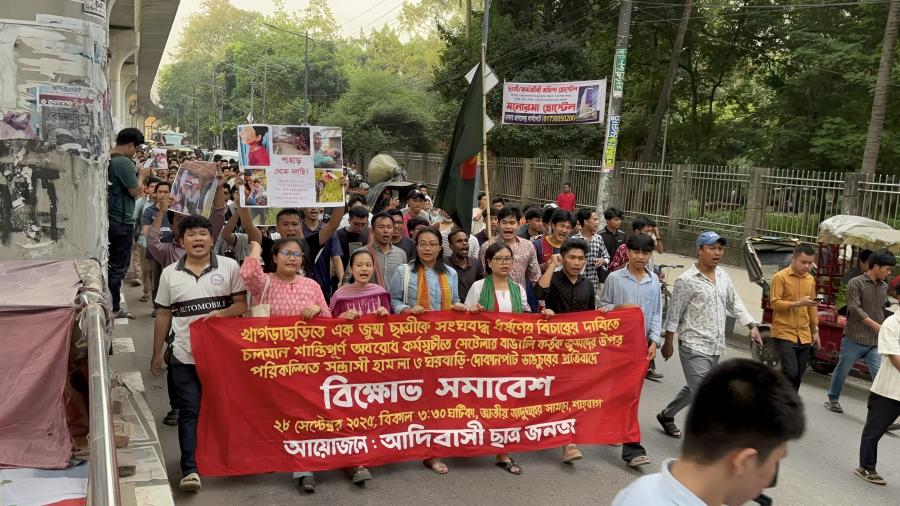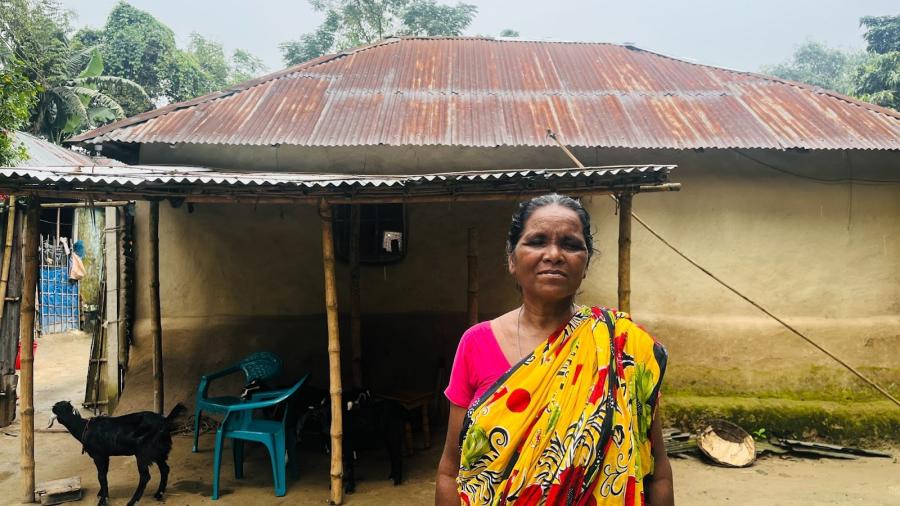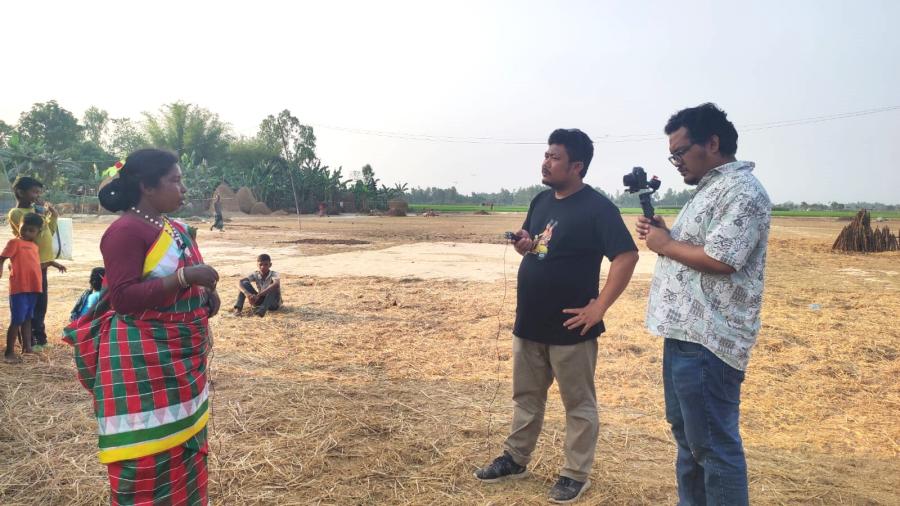An indigenous Garo youth was killed on January 3 by forest guards during a protest of the Ministry of Environment's Botanical Garden and Eco-Park in the Modhupur forest of the Chandranath Hills, the Dhaka Courier reported. Although no specific individuals had been accused, the Modhupur forest people in January blamed Bangladesh Nationalist Party members for intimidating indigenous protestors from agitating against the Eco-Park.
Since the killing, Garo protesters have taken to the streets demanding the killers be brought to justice and the work on the Eco-Park halted. Additional demands include the withdrawal of legal cases facing Garo youth, the transfer of the deputy commissioner and the police superintendent of Tangail from their current posts, and a long-term lease arrangement for Garo tribesman of forest lands.
The Botanical Garden and Eco-Park, a five-year project inaugurated in January 2001, is set in Sitakunda upazila on 1,996 acres of Chandranath Hills. Since the initiation of the project, Garo, Koch, and Khasia people, indigenous to Bangladesh and residing in the Chandranath Hills as tax-payers, have protested vehemently. The communities rely on produce from the natural forest and cultivate crops such as rice, ginger, potato, and pineapple.
Forest department officials claim the project is planned in such a way that no families will be dislocated. Community leaders from the area, however, claim upwards of 25,000 people will be dislocated because of the creation of the park with 45,000 acres of natural forest in danger of destruction.
Protestors were able to temporarily stop the construction of a 61,000 foot wall, designed to section off the Eco-Park, but the government does not intend to halt the project permanently. Responding to the fear that the Eco-Park's wall will dislocate locals without compensation, the community has formed a committee for Indigenous People's Land Rights and Environment Protection.
The Indigenous Peoples' Forum points out that Bangladesh is a signatory of the International Labor Organization convention protecting indigenous lifestyles and homes from destruction by the government. The Bangladesh government is taking advantage of the indigenous communities that do not have title deeds to the forest land. However, one of the village leaders in the Mahdab hills, Jendro Lamin, has documents to prove the payment of Taka 20 lakh (U.S. $34,100.60) in land taxes.
The Garo, Koch, and Khasia are known as being peace-minded. They are distraught by the killing and claim that local forestry and political groups' threats against protesters are causing a climate of fear among the villages.
Sonja Darai is an intern at Cultural Survival. This article was originally published on January 15 in Cultural Survival Weekly Indigenous News, an online news service. To subscribe and receive weekly news updates in your e-mail inbox, visit our Web site, www.cs.org



